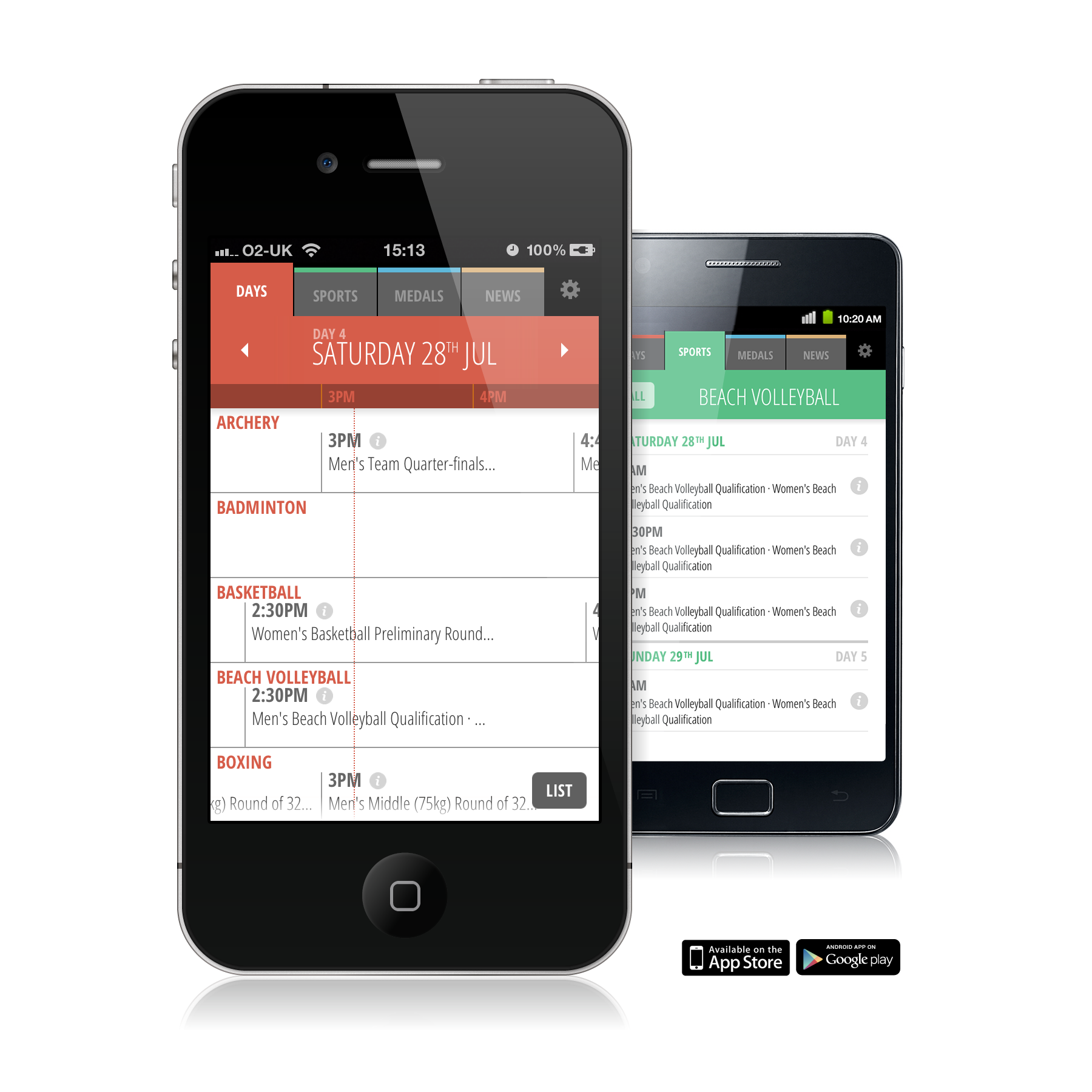One line of code
How I built an API for the London 2012 Olympics with one line of code.
In 2012, I built an app for the London Olympics. I'd seen the official app in the months leading up to the games and decided I could do better, so I set to work. I wasn't looking to profit from it, I just wanted to learn how to build an app.
In one section was news and in another was a global medal table. These had to be kept updated in real time. Back then I wasn't as proficient in cloud services as I am now, so I was looking for a simple solution. There was no official medal list API. I needed a way of obtaining, storing and serving this data for free. I was also worried about hosting costs - afterall, this is one of the biggest world events, what if my app became popular and struggled to deliver content.
I decided that the easiest thing to do was host a csv file. I would keep that updated and it would load into the app on every pull-to-refresh. But how could I keep it updated? And where could I host it? I thought about watching the games religiously and inputting all the data by hand, but decided to just steal a medal table from Wikipedia instead. Thanks Wikipedia moderators!
I loaded up Google Sheets and typed this into a cell:
=IMPORTHTML("https://en.wikipedia.org/wiki/2012_Summer_Olympics_medal_table", "table", 4)
And out popped the medal table…
+───────+────────────────+───────+─────────+─────────+────────+
| Rank | NOC | Gold | Silver | Bronze | Total |
+───────+────────────────+───────+─────────+─────────+────────+
| 1 | United States | 47 | 27 | 30 | 104 |
| 2 | China | 38 | 31 | 22 | 91 |
| 3 | Great Britain | 29 | 18 | 18 | 65 |
| 4 | Russia | 19 | 21 | 27 | 67 |
| 5 | South Korea | 13 | 9 | 8 | 30 |
| 6 | Germany | 11 | 20 | 13 | 44 |
| 7 | France | 11 | 11 | 13 | 35 |
| 8 | Australia | 8 | 15 | 12 | 35 |
| 9 | Italy | 8 | 9 | 11 | 28 |
| 10 | Hungary | 8 | 4 | 6 | 18 |
| ... | | | | | |
+───────+────────────────+───────+─────────+─────────+────────+
Bingo!
All I had to do was Share > Publish to web > as .csv and hey presto, here was my API.
And better still, there was an option to Automatically republish when changes are made which would poll the website every 5 minutes and update the CSV accordingly.
I pointed it at a few websites - BBC Sport, The Guardian, Wikipedia etc… So if markup broke on one website, it would default to the next one in line.
I did the same for the news; pointing at Google's own news site for tagged olympic news and then I launched the app with a few weeks to go before the opening ceremony.
I had tickets to the first day of the olympics and as I queued to get in with my friends, I pulled my phone out of my pocket, opened the app and pulled to refresh. It worked like a charm - all the way through the olympics. No hosting fees, no worries.
Actually looks like it may be easier to use than the official app
- The Guardian
The app had a reasonable amount of downloads (~10k), the API never went down, and it gave me the confidence to start building more apps and services.
Building digital services these days can be incredibly complicated. But I often think about this one line of code that instantly provided an API. It taught me to look for the simplest, smartest route - the fewer moving parts, the fewer things can break.
